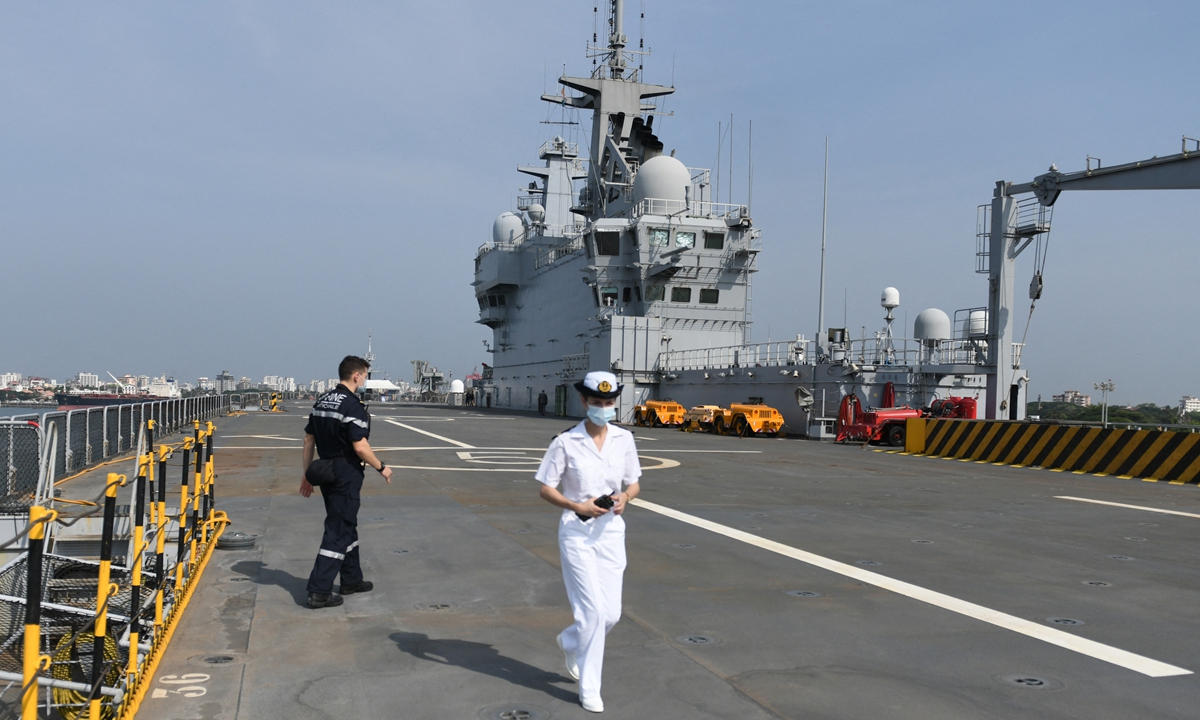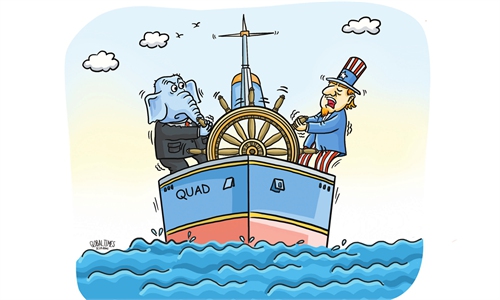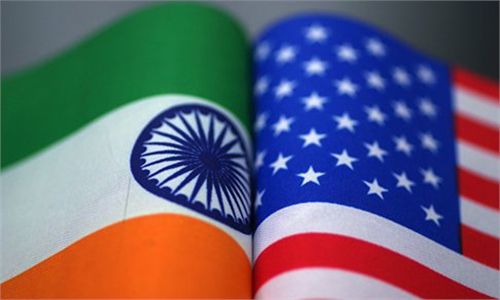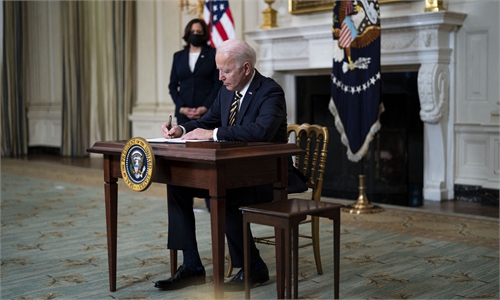
Cadets seen on the deck of the French amphibious assault helicopter carrier Tonnerre, as they prepare to dock at Cochin Port, in Kochi on March 30, 2021. Photo: AFP
A naval exercise between all members of Quad and France is scheduled to conclude on Wednesday. Times of India on Monday said the drill was to "eye on China" and underline "the growing strategic congruence in ensuring a secure and stable Indo-Pacific in face of China's belligerence in the region."Besides France, some other European powers, such as Germany and the UK, have also expressed their intentions in engaging in the Indo-Pacific region. The US-led Quad is attempting to expand into "Quad plus." European countries may be the ones the group wants to woo.
These European countries' moves, such as conducting exercises with Quad, or sending warships to the Indo-Pacific region, are mainly to emphasize their presence in the region, Sun Chenghao, an assistant research fellow at the Institute of American Studies of the China Institutes of Contemporary International Relations, told Global Times on Wednesday. The Indo-Pacific region, as the geopolitical hotspot in the world, attracts global attention. Against this backdrop, countries who regard themselves as global players will not miss the opportunity to assert their presence.
Collin Koh Swee Lean, a Research Fellow at the Singapore-based S. Rajaratnam School of International Studies' (RSIS) Institute of Defence and Strategic Studies, said the exercises between Quad members and France might be "designed to persuade other non-Quad nations to join similar arrangements," cited by South China Morning Post on Sunday. He suggested Southeast Asian countries such as Vietnam, the Philippines and Malaysia could be on the list of potential "Quad-plus" partners.
Sun said this notion sounds exaggerated. As a country outside the region, France lacks mighty appeal to ASEAN members. Moreover, Paris has always advocated independent diplomacy and is reluctant to become a pawn of the US, helping the latter to persuade other countries to join a US-led club.
But what is clear is that the US is trying to rally other countries to join its anti-China chariot. Such attempts will be full of difficulties. Countries from Southeast Asia and Europe have their own calculations. Their priority is to guarantee their security and ensure their economic interests, instead of joining whatever group against any country. Countries from the two regions heavily rest on China in terms of economy.
Furthermore, there are many cases illustrating that Washington turned its back on its allies for seeking its own interest. For example, to rope in China to counter the Soviet Union in the 1970s, Washington severed diplomatic relations with the island of Taiwan and established official ties with Beijing in 1979. Southeast Asian and European countries are clear the US is not a reliable ally or partner, and will be cautious in participating in the anti-China club at the risk of offending China.
Deutsche Welle Chinese on Tuesday tweeted that US, Japan, India, Australia and France - not eight yet - on its report about Quad-plus-France exercise, clearly an analogy to the "Eight-Nation Alliance," which refers to troops from the US, UK, Germany, France, Russia, Japan, Italy and Austro-Hungary that invaded Beijing in 1900. Just as a netizen mocked, the problem is the US cannot rally with other seven countries against China now.
It appears that Quad members are collaborating with more partners. But the fact is moves such as Quad-plus-France drill are only symbolic, without much influence on regional affairs. China is no longer what it was 120 years ago. No matter how hard the US strengthens its alliance system, it will fail to create a new "Eight-Nation Alliance."



